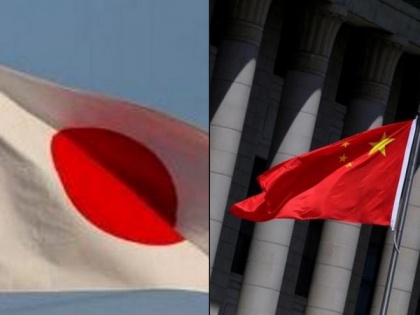Chinese intellectuals called 'traitors' after participating in Japanese exchange programme
By ANI | Published: June 9, 2021 11:17 PM2021-06-09T23:17:45+5:302021-06-09T23:25:18+5:30
Nearly 200 Chinese intellectuals, who took part in a Japanese government-affiliated exchange programme, have been branded as 'traitors' on Chinese social media, reflecting rising nationalistic sentiment in China.

Chinese intellectuals called 'traitors' after participating in Japanese exchange programme
Nearly 200 Chinese intellectuals, who took part in a Japanese government-affiliated exchange programme, have been branded as 'traitors' on Chinese social media, reflecting rising nationalistic sentiment in China.
According to South China Morning Post (SCMP), the Chinese intellectuals were sponsored to visit Japan by the Japan Foundation, overseen by the Japanese foreign ministry.
The programme was started in 2008 to improve exchanges between the two countries, with 196 Chinese intellectuals having been sponsored as of 2019, the ministry said.
However, participants have been criticised by some people online, after the visits recently came to their attention. Among these were He Bing, a professor at the China University of Political Science and Law, writers Jiang Fangzhou and Xiong Peiyun, and journalist Duan Hongqing.
"[Jiang] got the money from the Japanese government and tried to flatter Japan - traitor," one Weibo user wrote.
Responding on Weibo, Jiang rejected the accusation, saying the programme was a "normal cultural exchange" and denying "taking money from the [Japanese] ministry".
SCMP reported that there has been a rise in nationalism in China in recent years, which Chinese analysts said had damaged international exchanges.
Last month, a funding programme announced by the US embassy in China was described by Chinese state media as "recruiting traitors".
Pang Zhongying, an international relations professor at the Ocean University of China, said attacks on the programmes were detrimental to China's exchanges with the world and would cause a backlash, given that China, too, ran cultural exchanges overseas.
"It is natural for these Chinese citizens to reflect and write something after participating in the programme. Why should it be politicised?" Pang said.
"It cannot be said that it is a conspiracy by Japan. China runs Confucius Institutes in Japan - what would people say [if the roles were reversed]? China also encourages people to go out and tell good stories about China in Japan," the professor added.
Recently, tensions between China and Japan have escalated amid increased activity by Beijing in the disputed East China Sea.
This comes after Beijing implements a new law that allows the country's quasi-military force to use weapons against foreign ships that China sees as illegally entering its waters.
( With inputs from ANI )
Disclaimer: This post has been auto-published from an agency feed without any modifications to the text and has not been reviewed by an editor
Open in app